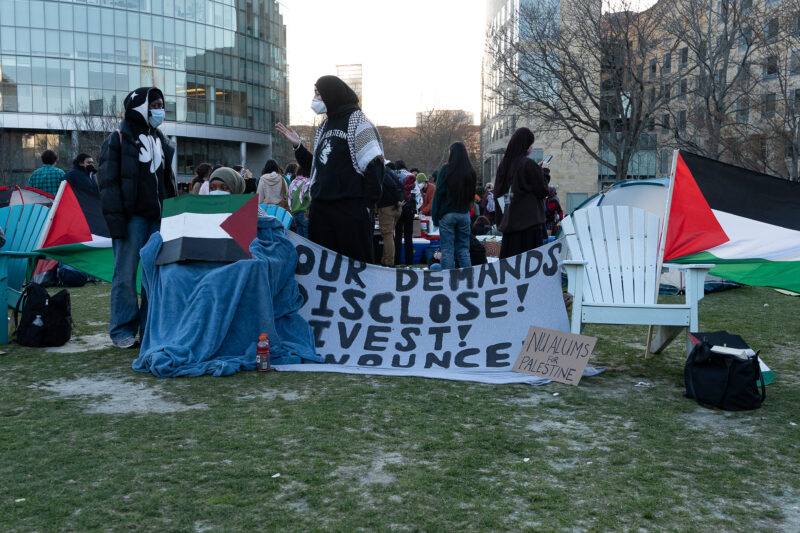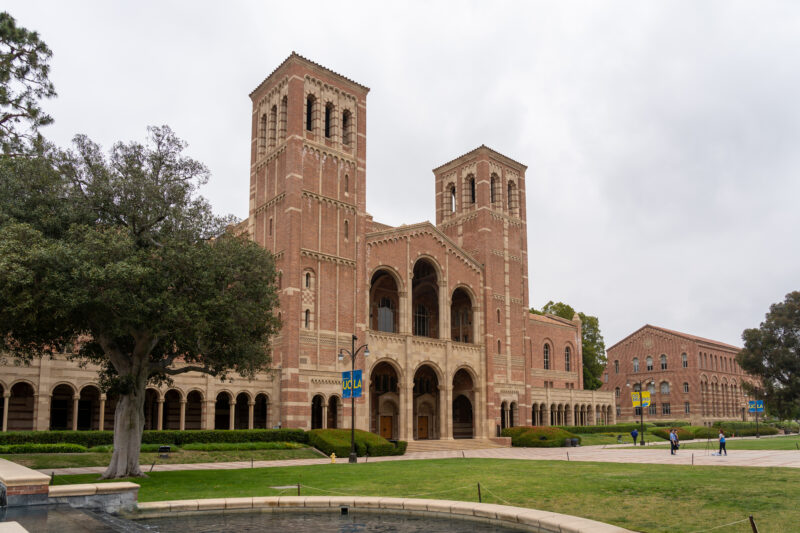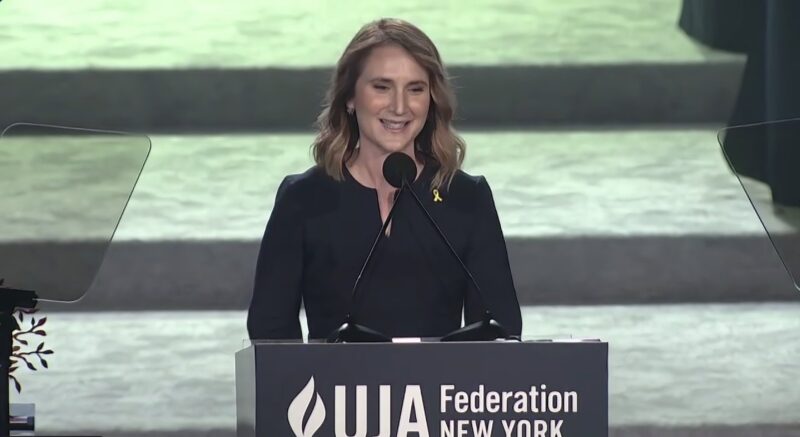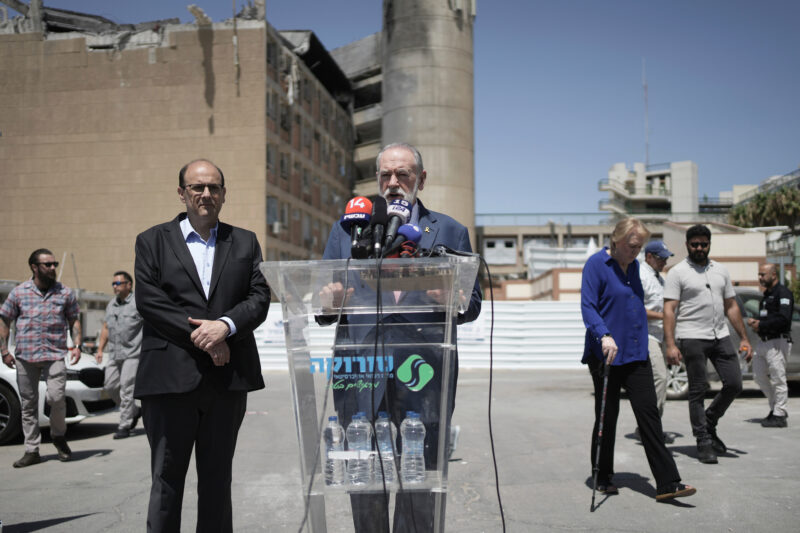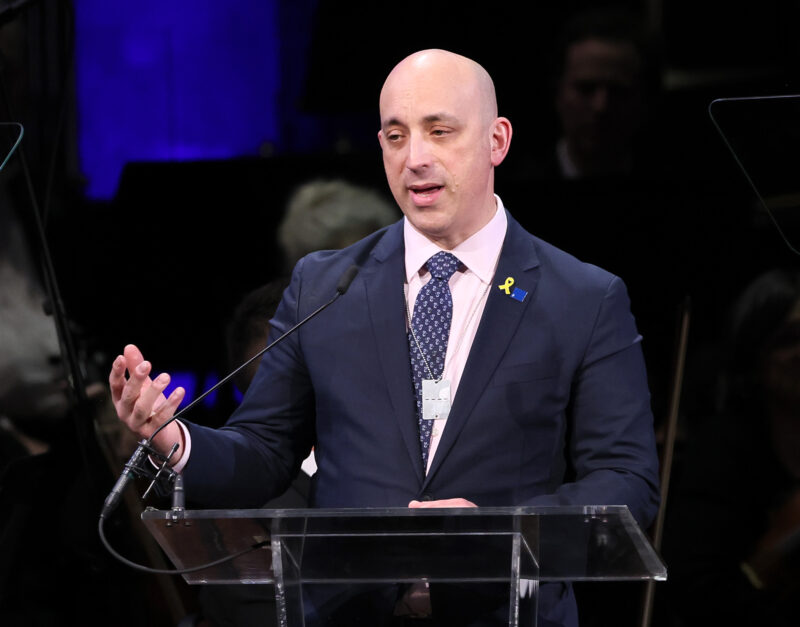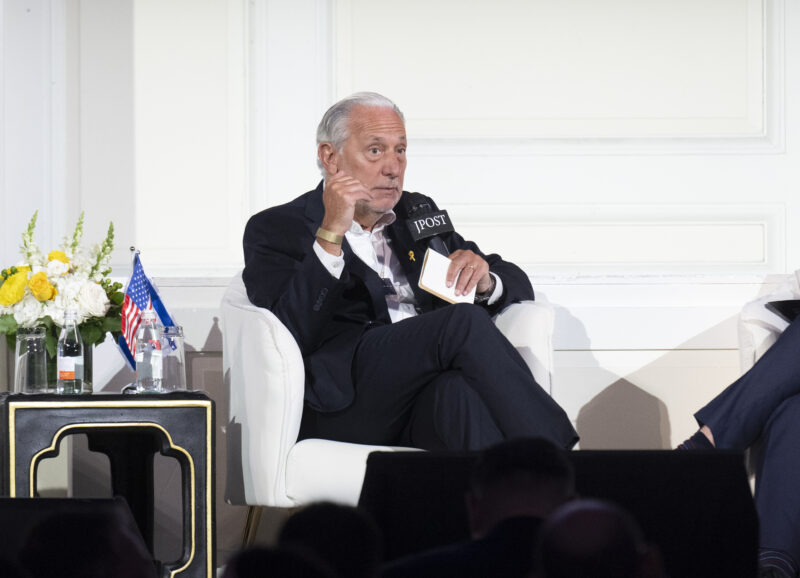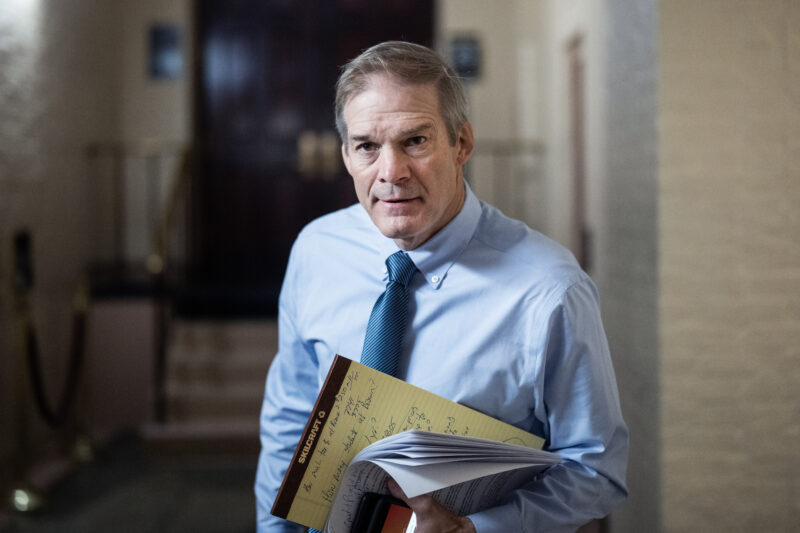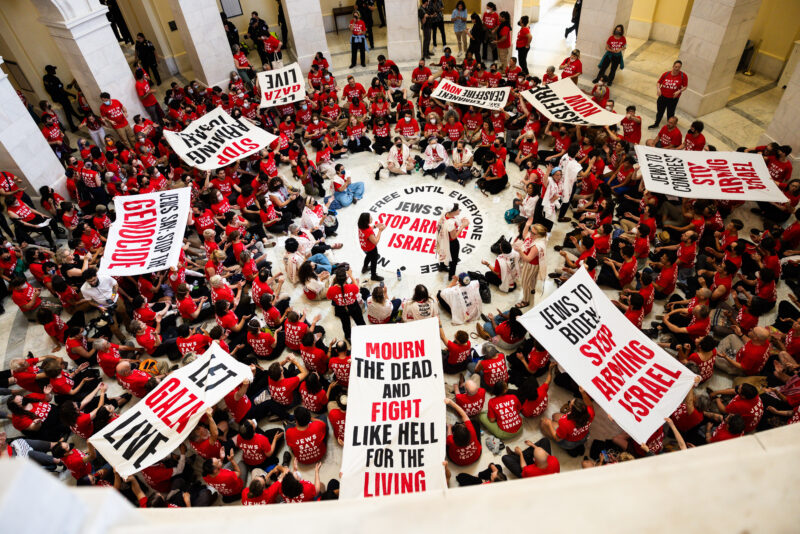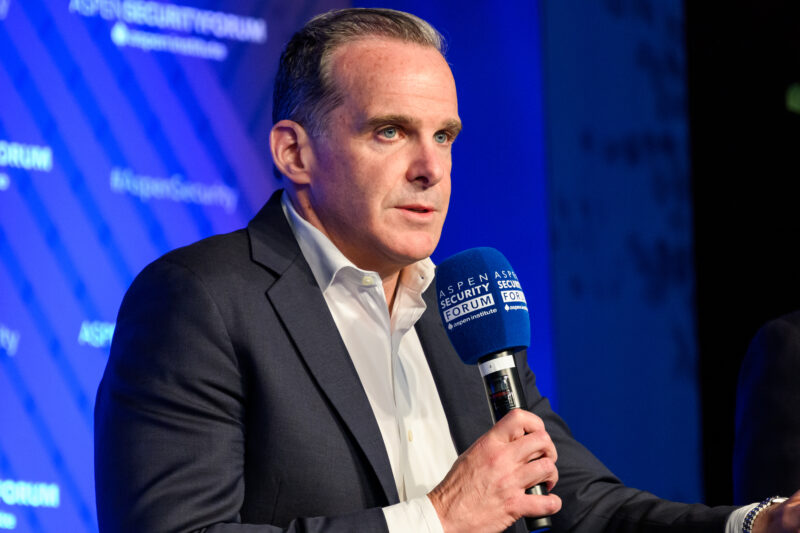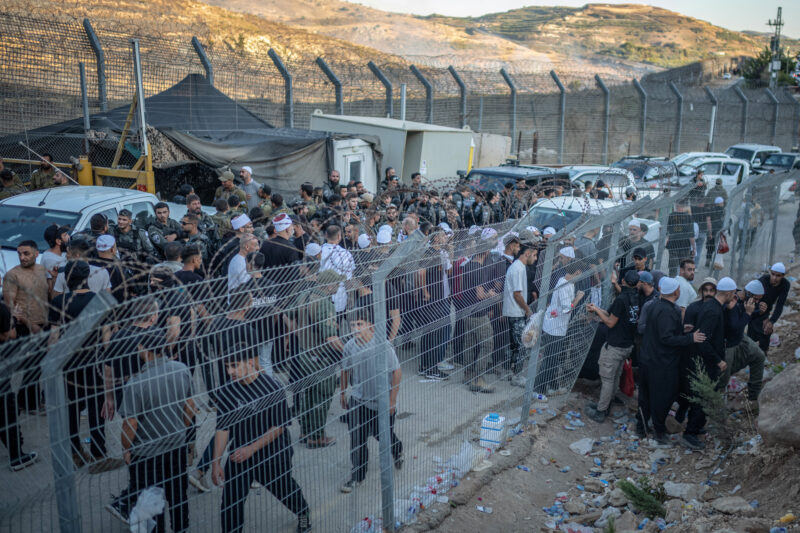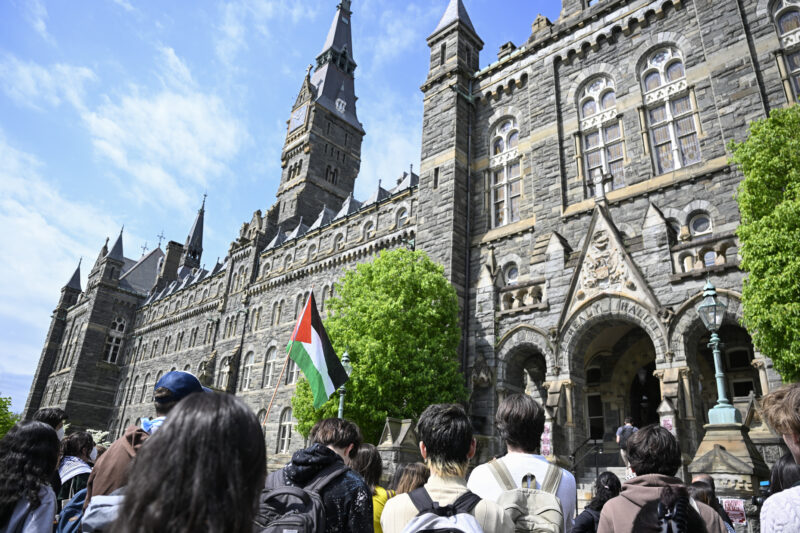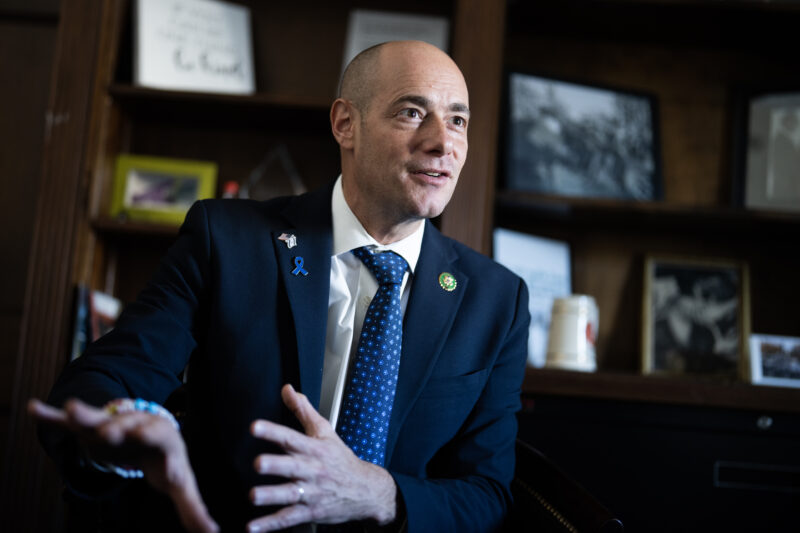Rabbi Doron Perez said waiting for his son Daniel’s body to be returned ‘is looking forward to something painful, which is an unusual thing, but it’s the end to an ongoing saga’
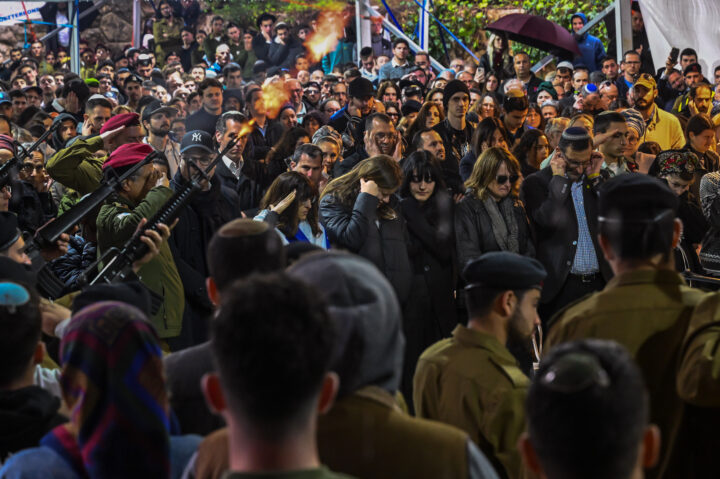
Alexi J. Rosenfeld/Getty Images
Sisters Shira Perez and Adina Perez, mother Shelly Perez, father Doron Perez and brother Yonatan Perez salute and cover their ears during the gun salute to IDF Capt. Daniel Perez at the end of the funeral at Mount Herzl National Cemetery on March 18, 2024 in Jerusalem.
As negotiations continue for a temporary ceasefire in Gaza, in which half of the remaining 50 hostages are expected to return to Israel over 60 days, families of those still being held are waiting to learn if their loved ones will be among those coming home soon. About 20 of the hostages are thought to be alive, but the families of the 30 others are also hoping to have a measure of closure, with their loved ones’ remains returned to be buried in Israel.
Rabbi Doron Perez told Jewish Insider that this period, in which there is constant discussion of a possible deal with hostages’ bodies returned to Israel, “is very nerve-wracking. … It aggravates the wound.”
His son Daniel was a 22-year-old officer in the IDF armored corps on Oct. 7, 2023, when Hamas attacked Israel. For five months, the family thought Daniel had been kidnapped, before learning that he had been killed on the day of the terrorist attacks and his body taken to Gaza.
When there is no talk of negotiations, Perez said, “You start thinking again, ‘Where is Daniel? Where is his body? Where is he being held?’ Some were found in cemeteries, some in tunnels, some in cupboards. You try to put it out of your mind, the vivid thoughts of where he may be, but [news about negotiations] brings it up again.”
Yafa Rudaeff is the wife of Lior Rudaeff, who was 61 years old and a member of the emergency squad in Kibbutz Nir Yitzhak, where they lived. He was killed by terrorists on Oct. 7 while defending the kibbutz; his body was taken to Gaza. He is survived by his wife, their four children and three grandchildren.
Rudaeff described the constant news about hostage talks to JI as emotionally wrenching. “It’s a roller coaster; sometimes yes, sometimes no,” she said. “It’s crazy.”
She was skeptical even as she called for a deal that would bring home all of the hostages.
“I live near the Gaza border, I hear what happens every evening [in Gaza] and wake up every morning to hear of another soldier killed,” she said. “I think that the best thing would be to get them all out in a deal so no more soldiers are killed.”
Rudaeff called for all of the living hostages to be released as soon as possible: “You cannot divide them. There is no one hostage whose situation is better or worse after so much time. They must all come home now.”
Perez said that the families of living hostages are going through “unimaginable suffering” and that he is praying for them, but he emphasized that it is important that the bodies not be left for the end, “because then you’ll never know if you’ll get them back.”
He noted that negotiations take a different view of living and deceased hostages.
“For a body, [Israel] gives something appropriate for a body, not a live, murderous terrorist,” he said, referring to some of the Palestinian prisoners released in exchange for living hostages. “It’s not bodies [of hostages] returning in place of those alive.”
In the past Israel has exchanged live terrorists for soldiers, such as in 2008, when it gave up five Hezbollah terrorists, including the infamous Samir Kuntar, who murdered Israeli children, in exchange for the bodies of Ehud Goldwasser and Eldad Regev.
Even if a temporary deal is reached, only half of the remaining hostages would be freed. Perez said that “in an ideal world, I would hope and pray that they can all come out, but I don’t think that is going to happen … because I don’t think Israel and Hamas can see eye-to-eye over what is considered the end of the conflict.”
But he is hoping for some degree of closure if Daniel’s body is returned.
“As a parent of someone deceased, you know the best you can hope for is to get a body back in a coffin,” he said. “There is no joy. … It is looking forward to something painful, which is an unusual thing, but it’s the end to an ongoing saga.”
Perez said his family is relatively lucky because they have a gravesite to visit, which they find to be “very meaningful.” Daniel’s bloodied uniform was found and buried, because under Jewish law all parts of the body, including any blood found, must be interred.
“There is a measure of comfort in that,” he said. “We don’t have a body, but we have a place. For people who don’t have a grave, it’s even worse. They have nowhere to go to pay respects.”
Rudaeff, however, has no gravesite for her husband. “We had a parting ceremony, but we haven’t really parted from him. We don’t have anything tangible.” she said. “I’m not delusional; I don’t think he’ll return, but we need the closure to successfully move forward.”
“This situation is not natural in any way,” she added.
Rudaeff expressed concern that her husband’s body will not be found “after all of the destruction in Gaza.”
She said the families of the deceased hostages “want to be able to end this chapter and start building something else without our loved ones. Now, we can’t do anything; we don’t know how to behave. To successfully rise up from this situation, we have to end it.”
Shlomi Nahumson, CEO of the IDF Widows and Orphans Organization, has been advocating for Rudaeff, whose husband is considered an IDF fallen because he was in the emergency squad, and five others widowed on Oct. 7 whose husbands remain in Gaza. There have been 317 new IDF widows and 735 new orphans since Oct. 7.
“These men put everything on the line to protect our future,” Nahumson said. “But until they can lay their loved ones to rest, they remain trapped in a tormenting state of uncertainty. It is imperative that we bring all their loved ones home — so that these families can find closure and begin to heal.”
Perez, who serves as the executive director of the World Mizrachi movement, said that in the nearly two years of advocating for his son’s return, he has seen that some cultures do not value the sanctity of a body after death, and he has had to explain this Jewish value to ambassadors and heads of state.
“I often quote Deuteronomy 21:24, which says you are not allowed to leave a body hanging, because it has the curse of God on it,” he said. “Our sages say the body has the image of God, a soul. A human body is not just a physical entity; it was infused during its life with something godly, soulful, beyond the physical world.”
“By not respecting the body, you are not respecting life, because a body is a receptacle of life, a fusion between heaven and earth. If you leave a body hanging, it is sacrilege … The desecration of the human body is a desecration of God’s name and the spirit and value of life,” he added.











